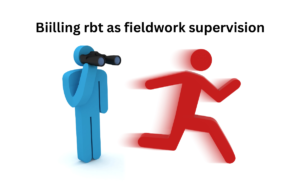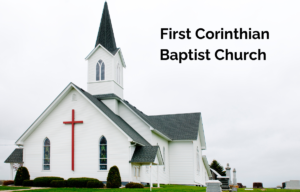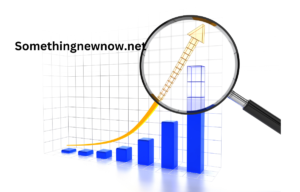When it comes to selling your home, the key to a successful Tips to Marketing Your Home. And swift sale lies in how well you market it. In today’s competitive real estate marketing your home, simply listing your home is not enough. You need a strategic approach to showcase your properties best features and reach potential buyers effectively. From staging your home to creating compelling listings and leveraging digital platforms, understanding the right marketing techniques can make all the difference. This guide will walk you through the essential steps and strategies to marketing your home successfully, ensuring you get the best possible price in the shortest amount of time.
- Sell your house
- Real estate marketing
- Home selling strategies
- Property listing
- Attract home buyers
- Online home listing
- Home staging tips
- Real estate photography
- Pricing your home
- Virtual tours for homes
How do I prepare my home for sale to attract buyers?
Preparing your home for sale is the first and most crucial step in attracting buyers. The goal is to make your property as appealing as possible, both in person and online. Start by decluttering every room, which not only makes the space look larger but also allows potential buyers to envision their own belongings in the home. A clean, organized space creates a positive first impression, which is essential in the competitive real estate marketing your home.
Consider making necessary repairs and upgrades. Small fixes, like patching holes in the walls, fixing leaky faucets, or repainting rooms in neutral colors, can make a big difference. Neutral tones appeal to a broader audience, allowing them to picture themselves living in the space. Enhancing curb appeal is vital; a well-maintained exterior can increase your home’s value and attract more foot traffic to your open houses.
Staging your home can significantly impact how quickly and at what price it sells. Staging involves arranging furniture and decor in a way that highlights the home’s strengths while downplaying its weaknesses. Professional stagers know how to showcase your home in its best light, often leading to higher offers from buyers.
What are the most effective marketing strategies for selling a home?
Effective marketing your home critical in selling a home quickly and at the best possible price. One of the most powerful strategies is creating a compelling online presence. This includes listing your home on popular real estate websites, using high-quality photos, and writing a detailed, engaging property description that highlights your home’s best features. In today’s digital age, most buyers start their home search online, so ensuring your listing stands out is crucial.
An effective strategy is to utilize social media platforms to reach a broader audience. Share your listing on Facebook, Instagram, and Twitter, and consider using paid ads to target specific demographics. Videos and virtual tours can also be shared on social media, giving potential buyers a comprehensive view of the property without having to leave their homes. This is especially useful for out-of-town buyers or those who prefer to narrow down their options before scheduling in-person visits.
To online marketing your home, traditional methods such as hosting open houses, distributing flyers, and networking with local real estate agents should not be overlooked. These strategies can create buzz in your local community, attract serious buyers, and even spark bidding wars, driving up the sale price of your home.
How can professional photography enhance my home listing?
Professional photography plays a pivotal role in creating a strong first impression for your home listing. High-quality images are often the first thing potential buyers see, and they can make or break a buyers interest in your property. A professional photographer knows how to capture your homes best angles, highlight its unique features, and use lighting to create warm, inviting images that draw buyers in. Given that online listings with high-quality photos receive significantly more views and inquiries, investing in professional photography is a smart move.
Professional photos can help your listing stand out in a crowded marketing your home. With so many properties available online, buyers are more likely to click on and engage with listings that feature clear, well-composed images. These photos help to establish credibility and can even justify a higher asking price by showcasing your home as a premium offering.
Professional photographers often provide editing services that can enhance the overall appeal of your photos. This might include adjusting lighting, correcting colors, or even virtually staging a room. These enhancements ensure that your home looks its best in every shot, further enticing potential buyers to schedule a showing.
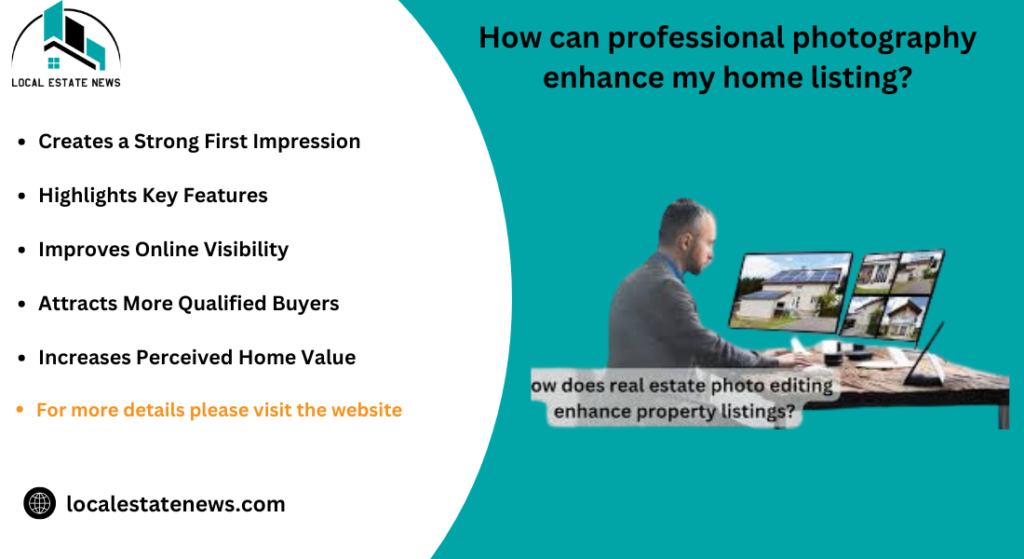
What are the best online platforms to list my home?
Choosing the right online platforms to list your home is crucial for reaching the widest audience and attracting serious buyers. The most popular real estate websites are essential starting points. These platforms have extensive databases of homes for sale and attract millions of visitors each month. Listing your home on these sites ensures that it is visible to a large pool of potential buyers who are actively searching for properties in your area.
To the major real estate websites, consider listing your home on more specialized or local platforms. For example, if you are selling a luxury property, websites like Luxury Portfolio or Christie’s International Real Estate may be more appropriate. These platforms cater to niche markets and can help target the right buyers for your specific property type. Some regions have popular local listing sites that can provide additional exposure in your community.
Important platform is Facebook Marketplace, which has gained popularity for real estate listings. It allows you to reach a broad audience and engage directly with potential buyers through messaging. Platforms like Craigslist, though less formal, can also attract a different segment of the marketing your home, especially for investment properties or homes that appeal to a broader demographic.
How do I write a compelling home listing description?
Writing a compelling home listing description is an art that can significantly impact how quickly your home sells. The key is to craft a description that is both informative and engaging, highlighting the unique features of your property while also appealing to the emotions of potential buyers. Start with a strong opening statement that captures attention and sets the tone for the rest of the description. For example, instead of simply stating, “This is a 3-bedroom home,” try something more enticing like, “Welcome to your dream home – a spacious 3-bedroom retreat with breathtaking views.”
Be sure to include specific details that make your home stand out, recent renovations, energy-efficient appliances, or a beautifully landscaped garden. Use descriptive language that paints a vivid picture of the property and the lifestyle it offers. Mentioning key features like an open floor plan, hardwood floors, or proximity to schools and parks can help buyers imagine themselves living there.. It is important to strike a balance between being descriptive and concise; avoid unnecessary jargon or overly complex language that might confuse readers.
A call to action to encourage potential buyers to take the next step, whether it is scheduling a viewing, attending an open house, or contacting your real estate agent for more information. A well-crafted description can create a sense of urgency and excitement, motivating buyers to act quickly before the property is sold.
Why is pricing your home correctly crucial for a quick sale?
Pricing your home correctly is one of the most important factors in ensuring a quick sale. If your home is priced too high, it may sit on the marketing your home for an extended period, causing it to become “stale” and potentially leading buyers to assume there is something wrong with the property. On the other hand, pricing it too low may lead to a quicker sale, but you risk leaving money on the table. Striking the right balance is key to attracting serious buyers and securing the best possible deal.
To determine the optimal price, conduct a thorough comparative market analysis (CMA). This involves looking at recent sales of similar homes in your area, considering factors, location, size, condition, and features. Pay attention to current market trends, including whether it is a buyer’s or sellers market, as these can significantly influence pricing strategies. Consider getting a professional appraisal to provide an unbiased estimate of your home’s value.
Psychological pricing strategies can also be effective. For instance, setting the price just below a round number (e.g., pricing at $499,000 instead of $500,000) can make the price appear more attractive and can position your home competitively against others in the same range. The right pricing strategy not only attracts more potential buyers but can also lead to multiple offers, potentially driving up the final sale price.
What role does staging play in marketing a home?
Staging plays a pivotal role in marketing your home, as it helps potential buyers visualize the property as their future home. Staging involves arranging furniture and decor in a way that highlights the homes best features, making the space appear more inviting and functional. Studies have shown that staged homes sell faster and often for higher prices than non-staged homes. This is because staging creates a strong first impression, which is crucial in a competitive marketing your home where buyers may be viewing multiple properties in a short period.
The goal of staging is to depersonalize the space so that buyers can imagine themselves living in it. This often means removing personal items, family photos, and opting for neutral decor that appeals to a wide audience. Professional stagers understand how to use furniture, lighting, and accessories to enhance a room’s appearance, making it feel more spacious and cohesive. For instance, they might rearrange furniture to improve flow or add mirrors to reflect light and make a room appear larger.
To make a home more visually appealing, staging can also help highlight the properties potential. For example, an empty room might leave buyers guessing about its best use, but a staged room clearly designated as a home office, gym, or guest bedroom removes this uncertainty. By showcasing the homes full potential, staging helps buyers see the value in the property, making them more likely to make a competitive offer.
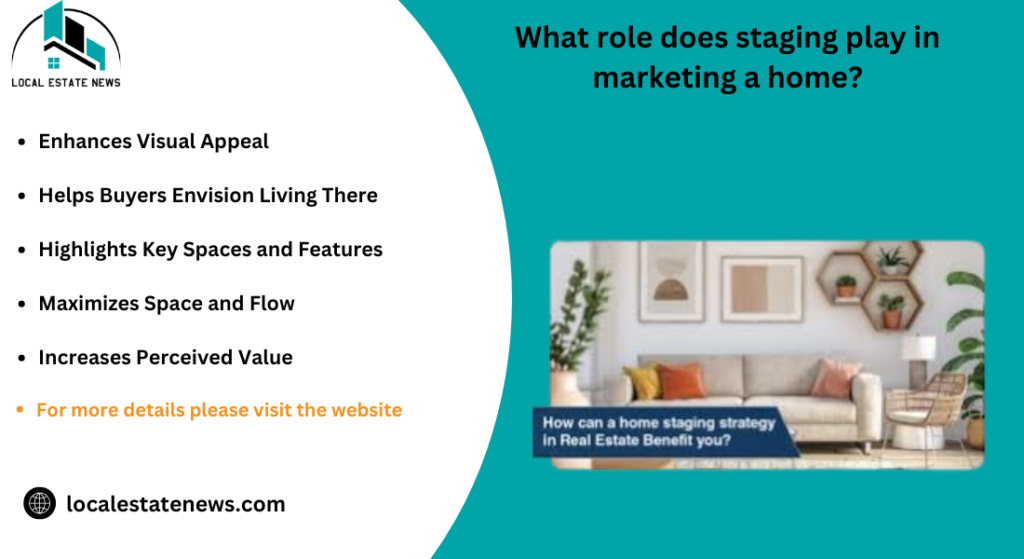
How can social media be used to market my home effectively?
Social media has become a powerful tool in real estate marketing, allowing sellers to reach a broad and diverse audience. Platforms like Facebook, Instagram, and Twitter offer unique opportunities to showcase your home through visually engaging content, photos, videos, and virtual tours. These platforms also enable you to target specific demographics, ensuring your listing is seen by those most likely to be interested in your property.
The most effective way to use social media for marketing your home is through high-quality visuals. Posting professional photos and videos of your home can attract attention and encourage sharing, which can exponentially increase the reach of your listing. Instagram, with its focus on imagery, is particularly effective for showcasing the aesthetic appeal of your home. You can also use Instagram Stories or Reels to provide live tours or highlight specific features of the property, giving potential buyers a more immersive experience.
To organic posts, consider using paid advertising on social media to boost your listing’s visibility. Facebook ads, for example, allow you to target users based on location, age, interests, and more. This targeted approach ensures that your home is seen by those who are actively looking to buy in your area.. Social media platforms enable real-time interaction with potential buyers, allowing you to answer questions, provide additional information, or schedule viewings directly through the platform. This level of engagement can significantly enhance your marketing your home efforts, making social media an indispensable tool in today’s real estate market.
What are the benefits of using a real estate agent for home marketing?
Using a real estate agent for home marketing your home offer numerous benefits, particularly in terms of expertise, network, and resources. Real estate agents are experienced professionals who understand the intricacies of the housing market your home, including pricing strategies, buyer behavior, and effective marketing techniques. They can provide valuable insights into how to position your home in the marketing your home to attract the right buyers and achieve the best possible sale price.
The key advantages of working with a real estate agent is access to their extensive network of contacts, including other agents, potential buyers, and industry professionals, photographers and stagers. This network can be instrumental in generating interest in your property, both through direct outreach and by leveraging industry relationships. Real estate agents also have access to multiple listing services (MLS), which are critical that your home is visible to other agents and their clients.
A real estate agent can handle the complex logistics of selling a home, from coordinating showings and open houses to negotiating offers and managing paperwork. This level of support can reduce the stress and time commitment involved in selling a home, allowing you to focus on other aspects of your move. Agents often have a keen understanding of legal and regulatory requirements, helping you navigate the process smoothly and avoid potential pitfalls. By using a real estate agent, you leverage their expertise and resources, ultimately increasing your chances of a successful and profitable sale.
How do I host a successful open house to market my home?
Hosting a successful open house is a powerful way to generate interest in your home and create a sense of urgency among potential buyers. The first step in planning an open house is to choose the right date and time. Weekends are typically the most popular times for open houses, as this is when most buyers are free to attend. Consider the local marketing your home and community events to avoid conflicts that could reduce attendance. It’s also important to advertise the event well in advance through multiple channels, including online listings, social media, and neighbourhood flyers.
The open house, ensure your home is in pristine condition. Clean every room thoroughly, declutter spaces, and stage the home to highlight its best features. Fresh flowers, pleasant scents, and soft background music can create a welcoming atmosphere. Provide informational materials, brochures or fact sheets, that detail the home’s features, the neighbourhood amenities, and contact information for follow-up. Offering refreshments can also make visitors feel more comfortable and encourage them to stay longer.
During the open house, it is essential to be available to answer questions and provide additional information, but without hovering. Some sellers prefer to have their real estate agent handle the event, allowing buyers to explore the property freely and ask questions in a pressure-free environment. After the open house, follow up with attendees who showed interest to gauge their level of interest and address any concerns they may have. A well-executed open house not only attracts multiple potential buyers but can also lead to competitive offers, helping to sell your home more quickly.
What are the common mistakes to avoid when marketing a home?
When marketing your home, even small mistakes can have significant consequences, potentially leading to a slower sale or a lower selling price. The most common mistake is overpricing the property. While it might be tempting to set a high asking price to leave room for negotiation, this strategy can backfire by deterring potential buyers. Homes that are priced too high often sit on the market longer, leading buyers to question if there is something wrong with the property. It’s crucial to conduct a thorough market analysis and set a realistic price that reflects the true value of the home.
Common mistake is neglecting the quality of your online listing. In today’s digital age, the first impression buyers get of your home is often through online photos and descriptions. Poor-quality photos, vague descriptions, or missing details can turn potential buyers away before they even consider scheduling a viewing. Investing in professional photography and writing a compelling, detailed listing description can significantly enhance the appeal of your home online. First time home buying in full guide
Failing to make necessary repairs or neglecting curb appeal can also hurt your chances of a successful sale. Buyers may be turned off by visible signs of neglect, peeling paint, overgrown lawns, or broken fixtures. These issues can lead buyers to perceive the home as a fixer-upper, lowering their offers or dissuading them from making an offer altogether. Addressing these issues before listing your home ensures that it makes the best possible impression on potential buyers.
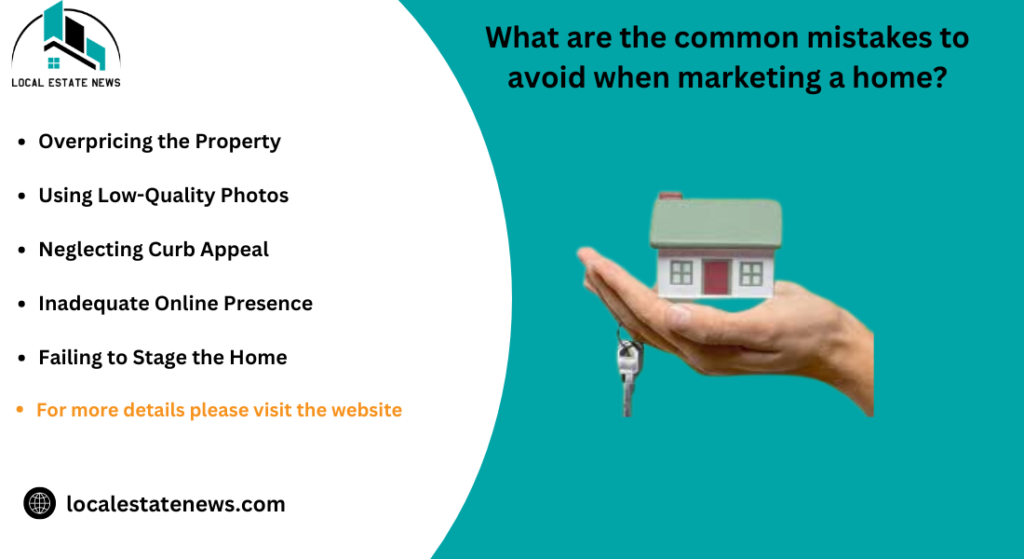
How can I leverage virtual tours to attract potential buyers?
Virtual tours have become an increasingly popular tool in real estate marketing your home, especially in the age of digital browsing and social distancing. These immersive, 360-degree tours allow potential buyers to explore your home from the comfort of their own, providing a detailed and interactive experience that photos alone cannot offer. Virtual tours can showcase your homes layout, flow, and unique features in a way that static images cannot, making them a powerful tool for attracting serious buyers.
The main benefits of virtual tours is that they can broaden your pool of potential buyers. Out-of-town or international buyers who may not be able to visit in person can still get a comprehensive view of your property, which can be particularly valuable in competitive markets. Virtual tours allow buyers to explore your home at their own pace, revisiting areas of interest and gaining a better sense of whether the property meets their needs before they decide to schedule an in-person visit.
To leverage virtual tours effectively, ensure that the tour is professionally done. High-quality video, proper lighting, and a smooth, user-friendly interface are essential for making the tour engaging and effective. Promote your virtual tour across all your marketing your home channels, including real estate listings, social media, and email newsletters, to maximize exposure. By providing a virtual tour, you not only enhance the appeal of your home to a broader audience but also increase the likelihood of attracting serious, qualified buyers who are ready to make an offer.
What seasonal factors should I consider when marketing my home?
Seasonal factors can significantly impact how quickly your home sells and at what price, making it essential to consider timing when marketing your home property. Spring and early summer are the busiest seasons for real estate, as families prefer to move during the school break, and the weather is generally more favorable for home showings. During these months, homes often sell faster and at higher prices due to increased buyer demand. If you plan to list your home in spring, it’s wise to start preparing in late winter, ensuring your property is ready to hit the market at the peak of the season.
Fall can also be a good time to sell, particularly early in the season before the holidays. Buyers during this time are often more serious, motivated by the desire to close a deal before the end of the year. Marketing your home in the fall means paying extra attention to curb appeal, as fallen leaves and early frosts can detract from the property’s appearance. Highlighting cozy features, fireplaces or energy-efficient heating, can also appeal to buyers during cooler months.
Winter is generally considered a slower time for home sales, particularly in areas with harsh weather conditions. This doesn’t mean it is impossible to sell during winter. Fewer listings mean less competition, and buyers who are looking during this time are often highly motivated. If you’re selling in winter, ensure your home is warm and welcoming, with clear, safe pathways to the door and well-lit rooms that feel inviting. Seasonal decor can add charm, but it’s important to keep it tasteful and not overdone.
How can I track the effectiveness of my home marketing efforts?
Tracking the effectiveness of your home marketing efforts is crucial to understanding what is working and where adjustments may be needed. The most straightforward ways to monitor your marketing performance is through online listing analytics. Most real estate platforms provide data on how many views your listing receives, the average time spent on the page, and how often your listing appears in search results. If you notice a high number of views but few inquiries, it may indicate that your listing description or photos need improvement. home marketing details
Online metrics, keep track of the number of inquiries, showings, and offers your home receives. This data can give you insights into how attractive your home is to potential buyers and whether your pricing strategy is effective. If showings are low, it might be worth revisiting your marketing tactics, adjusting the price, enhancing the listing photos, or increasing advertising efforts.
An effective way to track your marketing efforts is by gathering feedback from potential buyers who visit your home. Ask your real estate agent to collect feedback from showings and open houses, which can provide valuable information about what buyers like or dislike about your property. This feedback can help you make necessary adjustments to your marketing strategy, ensuring that your home appeals to the right audience and sells in a timely manner.
What are the latest trends in real estate marketing?
Staying on top of the latest trends in real estate marketing can give you an edge in selling your home. One of the most prominent trends is the increasing use of technology, virtual reality (VR) and augmented reality (AR), to create immersive home tours. These technologies allow potential buyers to experience the property in a more interactive and engaging way, even if they can’t visit in person. Virtual staging, where digital images of furniture and decor are added to photos of empty rooms, is also becoming more popular as it offers a cost-effective way to showcase a home’s potential.
Trend is the growing importance of social media in real estate marketing. Platforms like Instagram and Facebook are being used not just to list homes but to build a narrative around them. Real estate agents and sellers are creating content that highlights the lifestyle associated with a property, nearby amenities, community events, or local attractions. This storytelling approach helps to connect with buyers on an emotional level, making them more likely to envision themselves living in the home.
Sustainability and eco-friendly features are also increasingly important to buyers, especially among younger generations. Homes with energy-efficient appliances, solar panels, or smart home technology are in high demand. Marketing these features can set your property apart and attract buyers who prioritize sustainability. Highlighting these aspects in your listing, using keywords like “energy-efficient” or “eco-friendly,” can help your home stand out in a crowded market.
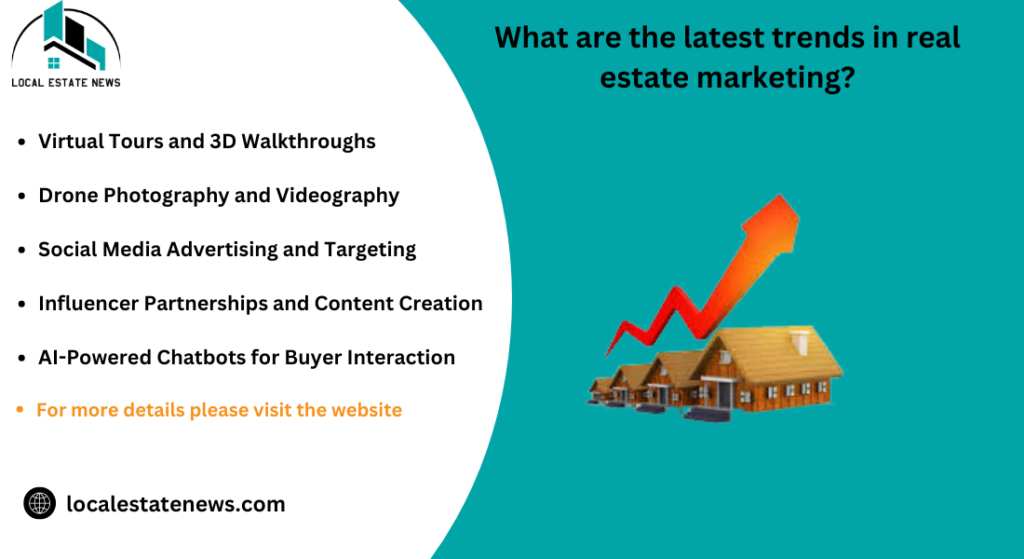
Why is it important to strategically market your home?
Strategically marketing your home is crucial to achieving a successful sale in today’s competitive real estate market. A well-executed marketing plan not only increases the visibility of your property but also highlights its most appealing features, attracting the right buyers who are willing to make competitive offers. By understanding and leveraging key strategies proper staging, effective use of online platforms, and pricing your home correctly you can significantly enhance your home’s appeal and shorten the time it spends on the market.
Staying informed about the la the use of virtual tours and social media, ensures that your home stands out in a crowded marketplace. These tools allow you to reach a broader audience and engage potential buyers in innovative ways, increasing the likelihood of a successful sale. Monitoring and adjusting your marketing efforts based on feedback and analytics is also essential for optimizing your strategy and achieving the best possible outcome. Open house tips in full detailed
Marketing your home is not just about listing it for sale; it is about presenting it in the best possible light to attract serious buyers. By taking a strategic approach, you can maximize your homes market potential, that you sell quickly and at a price that meets or exceeds your expectations. Whether you are working with a real estate agent or managing the process on your own, understanding the importance of strategic marketing is key to a successful home sale.



